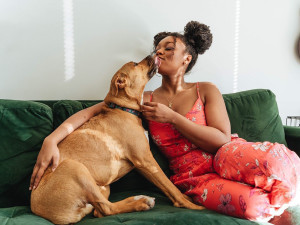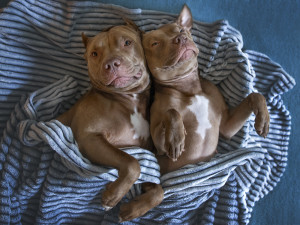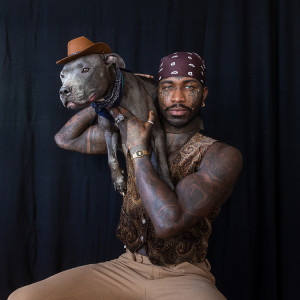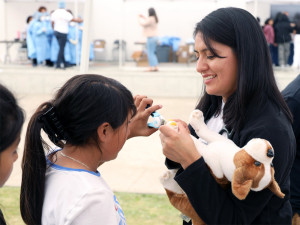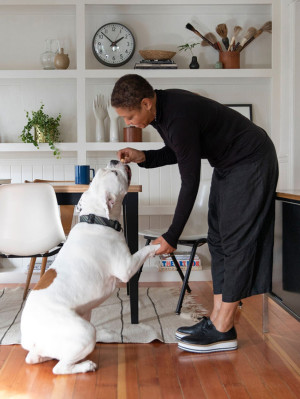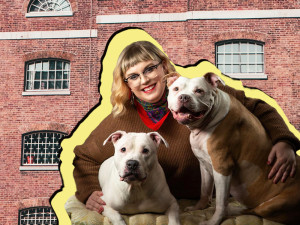Have Animal Rescue Organizations Stayed True to Their Diversity Commitments?
Four years after many DEI activism pledges, a BIPOC academic-advocate weighs in on where we stand today.
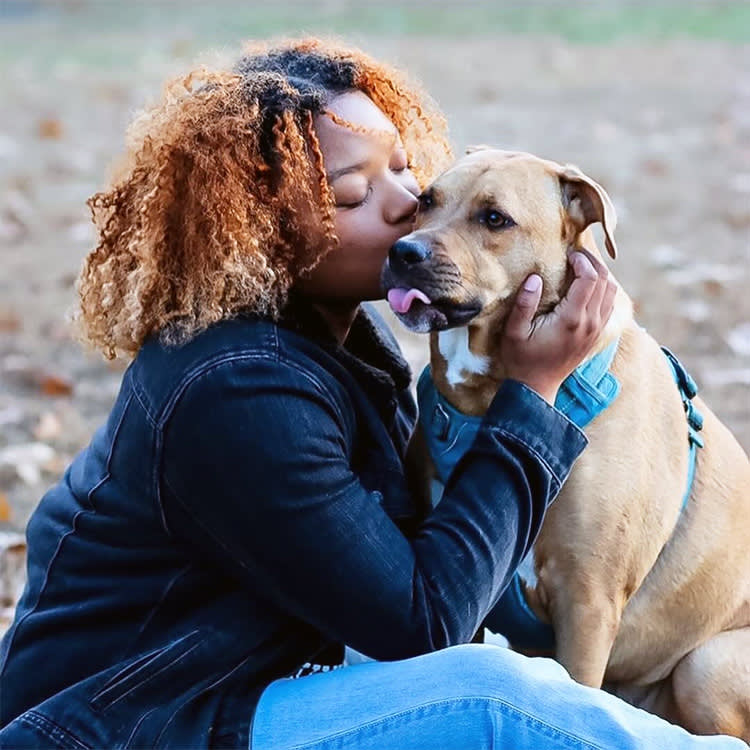
Share Article
A memorable, memed lineopens in new tab from the TV comedy Community triangulates much of what is wrong with animal-rescue crusaders, racial microaggressions, and the perceived immunity of saviorism: “I can excuse racism, but I draw the line at animal cruelty.” That quote was delivered by the series’ angsty activist Britta (played brilliantly by Gillian Jacobs) to call out the hypocrisy that often belies progressive activism. And like any clever truism, a decade later, it’s still got staying power.
In the days, weeks, and months after the horrific murder of George Floyd and the subsequent rise in the Black Lives Matter movement, we witnessed a hopeful spike in awareness across countless industries. The rescue world, which touts itself as a purveyor of compassion and welfare, was no exception, denouncing pervasive racial bias and leaning into inclusivity.
It felt like progress. The ASPCA’s DEI pageopens in new tab stated the org’s “commitment to fostering a collaborative and compassionate culture and to principles of diversity, equity, and inclusion.” Best Friends’ CEO wroteopens in new tab, “We will work to actualize [diversity and inclusion] in the execution of our mission with our partners and through all of our connections inside and outside of animal welfare.” (Another post detailed the racismopens in new tab its own employees have faced in their daily lives.)
Related organizations followed in kind. Among them: Farm Sanctuaryopens in new tab (“True solidarity is constant and demonstrated through a commitment to taking action against that which is unjust”); the American Animal Hospital Associationopens in new tab (“We want to be clear that we support our Black colleagues, veterinary clients, and the entire Black community”); and PETAopens in new tab which deferred to a BIPOC writer (“If we truly believe in empathy and compassion for all living beings, we can show it today”).

DEI and pets in 2024
Four years later, have we made any progress? Kinship checked in with BIPOC academic-advocate and Pit Bull parent Kassidi Jonesopens in new tab, (@gingernapsopens in new tab), who regularly details the racism grandfathered into canine rescue) for a state of the union, a year after chatting with her about her social-media activism. While awareness has grown, she contends, change never actually stuck a landing.
“I think that there has been some [positive movement]. Folks that had never had these conversations began to have these conversations,” she says. “But unfortunately, I think most of the people that got involved were doing so because everybody else was. There are no financial repercussions for not saying anything, so most people do not feel obligated to do that work anymore.”
Because of her significant following, Jones has been approached for collaborations like any influential Instagrammer would. But in her case, they rarely work out. “Most of the popular brands that reach out to me would prefer that I tone it down, so as not to scare their audiences, which is why you don’t see many brand deals on my page,” she says. “‘Be less scary to white people’ — that’s how I interpret it. As a person who experiences racism, I don’t really feel an obligation to be gentle when we’re having these difficult conversations. They’ll want me to do a blog, but not mention the horrific details that I would mention on my page and kind of speak in these abstractions … about love and light.”
The exceptions to the above have been equality-driven organizations that have contacted her, including CAREopens in new tab (a nonprofit that fights animal-rescue prejudices), Consciously Unbiasedopens in new tab (a DEI workplace-training company), and the Arizona Pet Projectopens in new tab (which aims to keep disadvantaged people with their beloved pets through several resources). In contrast, even the rescue where Jones adopted Ginger, her Pit Bull, wants nothing to do with her. Says Jones, “I truly don’t think they want to be involved.”
Some orgs just do it for the PR
Ultimately, the majority of corporate diversity declarations ended up being public-relations initiatives. “That’s ultimately what the PR machine is designed to do, to say, ‘Hey, we’re not racist. We’re cool!” points out James Evans, founder-CEO of the aforementioned CARE (Companions and Animals for Reform and Equity). “But that does not say, ‘We are equitable.’ Being equitable is something very different.”
The reality of white saviorism is a particularly touchy one in the animal-welfare world, one predicated on saving lives, which makes them feel impervious to criticism. “Those are the posts that I get the most hate for. I have seen messages that people have sent to other people about me being racist against white people specifically because of a postopens in new tab,” Jones explains. “Which is interesting to me, because … I do not say that all white people who participate in rescue have a white-savior complex, but rather here are some qualities that distinguish your standard rescue procedure from white saviorism.”
Perhaps, she continues, it hits too close to home. “I guess some folks recognize some of those qualities in themselves and didn’t want to hear it, because they believe they’re doing the right thing.”
To that end, CARE currently offers a DEI curriculum for shelters and rescues, while Jones is hoping to design courses of her own in the future. Still, the concept of equity is an intricate one. It starts with dismantling one of the cornerstones of animal rescue: the flawed notion that, as Jones puts it, “Pet ownership is a privilege, not a right.”
“What I perceive the mission of animal welfare to be is that, ‘We don’t want all these dogs to be in the shelters. They need homes. But not your home, because it’s not up to my standard of wealth and care,’” she says. “Saying that…really fails to address the problem: that a lot of people cannot afford to take care of themselves and pets. That’s a systemic issue that we should be addressing, rather than shaming the individual suffering the consequences of capitalism.”
Evans cites a wealth-gap studyopens in new tab by the Corporation for Enterprise Development that estimates it would take Black Americans a staggering 228 years to match the household income of their white counterparts. Additionally, “CARE did a study with Harvard Project Implicit across animal welfare, and it clearly showsopens in new tab that the bias in the field is pro-white, and the thing they dislike the most is poverty,” Evans says. “So if you are poor and black, or poor and Latino, then you’ve got two biases working against you at the same time.”
To put this in perspective, that type of prejudice has even impacted a CARE associate named Leslie. A Black woman and former police officer, she was rejected 16 times while trying to adopt a Great Dane. Most rescues didn’t even bother to respond to her application. Those who actually did told her they didn’t think she could afford a Great Dane.
Hope for effective change
This bias, in turn, fuels restrictive animal-adoption laws and policies. At the moment, CARE is currently fighting breed-based legislation and home-insurance policies that ultimately target BIPOC ownership of dogs such as Pit Bulls and German Shepherds. Jones does see a little hope on the horizon, after a lawsuit recently forced Prince George County in Maryland to stop enforcingopens in new tab its Pit Bull ban. “If it can happen in one place,” she says, “it can happen in many places.”
Meanwhile, for those who are living on a tight budget, something as seemingly innocuous as a spay-neuter law can double as discrimination. Lower-income pet parents may not be able to afford the procedure, or they are discouraged by how inaccessible a clinic may be, especially if they rely on public transportation that doesn’t accommodate pets. Says Evans, “One should never be asking if someone is capable of doing anything except loving and feeding this animal.” (CARE is currently working on a years-long longitudinal study to research how animal control over-polices BIPOC communities as well as prejudices in shelter adoption.)
To Evans, the solution is singular, just not an easy one: more BIPOC people in legislative roles, in leadership positions at rescues, in oversight of nonprofit grants, and in veterinary practices, where finding a Black doctor can feel as rare as spotting a unicorn. “If you look at veterinary medicine alone, it’s 91 percent white. But pet parents are approximately 51 percent white and 49 percent BIPOC,” Evans says, noting that CARE currently offers scholarships aimed at placing more BIPOC people in these roles. “In policymaking, it’s almost 100 percent white. In sheltering, 83 percent white. Animal control, almost 100 percent white. Somehow BIPOC leadership capability is completely invisible.”
Despite these enormous obstacles, Jones remains optimistic. “There’s strength in numbers,” she says. “We really just need one major example showing people that it’s possible to do this work, to rescue, and keep the mission of housing and caring for animals at the forefront while still being conscious of diversity, equity, inclusion, and belonging. These don’t have to be competing aims. A rescue can thrive doing both of these jobs at once.”

Nisha Gopalan
Nisha Gopalan has been a writer/editor for The New York Times, New York magazine, Entertainment Weekly, Variety, The Hollywood Reporter, and NYLON magazines. She currently resides in Los Angeles.
Related articles
![Yves, a man with a lot of tattoos and a brown paisley head bandana in tan pants holding his grey Pitbull dog who is wearing a tiny cowboy hat over his shoulder]()
The Misunderstood Pit Bull Is at the Top of Yves’s Advocacy List
The model, activist, and musician on his activism philosophy: “I’ve always been drawn to those who have been left behind, forgotten, misunderstood. I relate to them on a very deep, personal level. No matter how different you are, everyone deserves a chance.”
![a child helps clip a fake dog's nails]()
91 Percent of Veterinarians Are White—This Organization Is Aiming to Change That
It’s all about encouraging the next generation of vets.
![House Dogge designer Angela Medlin and her dog]()
12 Black-Owned Pet Brands You Should Absolutely Shop
Customized meals, sustainable toys, handmade sweaters, and more.
![Happy couple and their pit bull dog together.]()
News Outlets Recklessly Give Pit Bulls a Bad Rap—Yet Again
Following the death of a California man last week, headlines only did further harm to Pit Bulls’ reputation.
![My Pit Bull is Family]()
“My Pit Bull is Family” Fights For the Big Little Guys
The fair-housing org’s journey from bumper stickers to databases.
